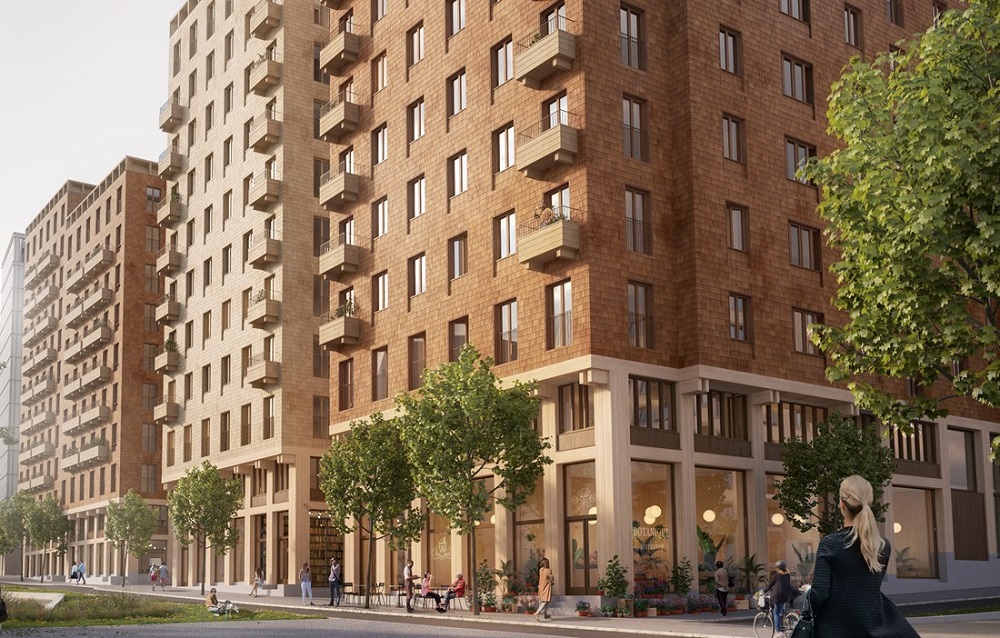Within Folkhem’s Cederhusen project, Stockholm’s Sweden first inner city district to be built in wood, a collaborative group of experts in various fields has been put together, with members from the industry organisation Swedish Wood, Folkhem/Veidekke Eiendom, Veidekke Entreprenad, Zynka BIM, Bjerking and Vertex Systems. The aim is to make serious advances in the development of quality assured and active climate work through every phase of a construction project by using a current, real-life project.
“We have high ambitions for this project on every front; and in terms of the climate impact, we want to find out how choices made early on in the process can cut emissions,” says Anna Ervast Öberg, head of project development for wooden buildings at Folkhem/Veidekke Eiendom, who continues: “It’s also about finding systems and methods that prepare us for the imminent legal requirement that buildings must come with a climate declaration, but it’s at least as important to gather correct climate data as a support for decision-making in our processes.”
“The wood industry has a huge role to play in the current green transition. Our job is to help our member companies develop their own knowledge and tools, and so help to educate the whole construction sector, and we want show what can be done in an actual project based on the tools and know-how we already have. Now the next stage of development is to focus on standardising data and systematising information,” comments Johan Fröbel, Head of Technology and Distribution at Swedish Wood.
The Swedish National Board of Housing, Building and Planning (Boverket) has put forward legislation requiring a climate declaration for buildings. This will come into force on 1 January 2022, making the developer responsible for producing a climate declaration for a finished building and submitting it to Boverket.
The proposal is for the legislation to apply to all new buildings and their structural elements, building envelope and internal walls.
Practical digitalisation based on existing tools and processes can show how industrial wood construction on a large scale enables faster development with less of a climate impact and lower costs.
